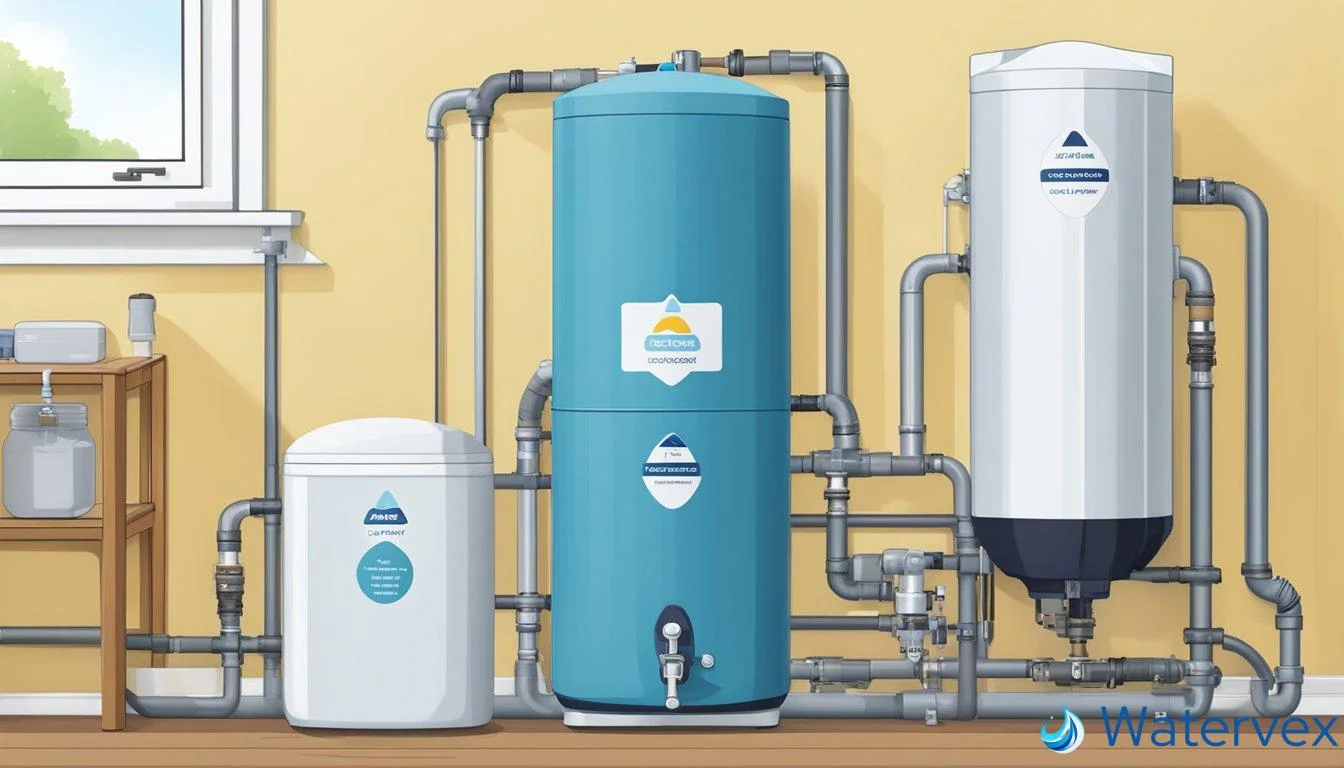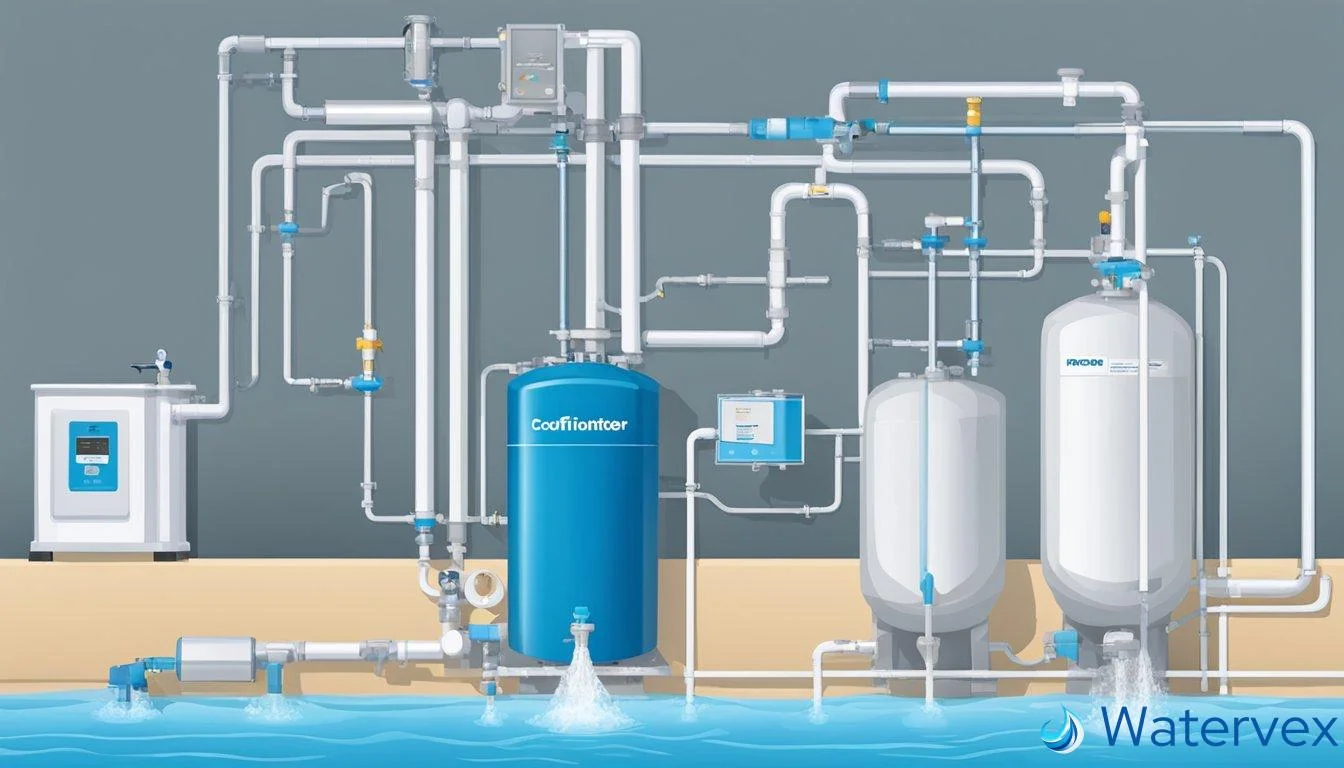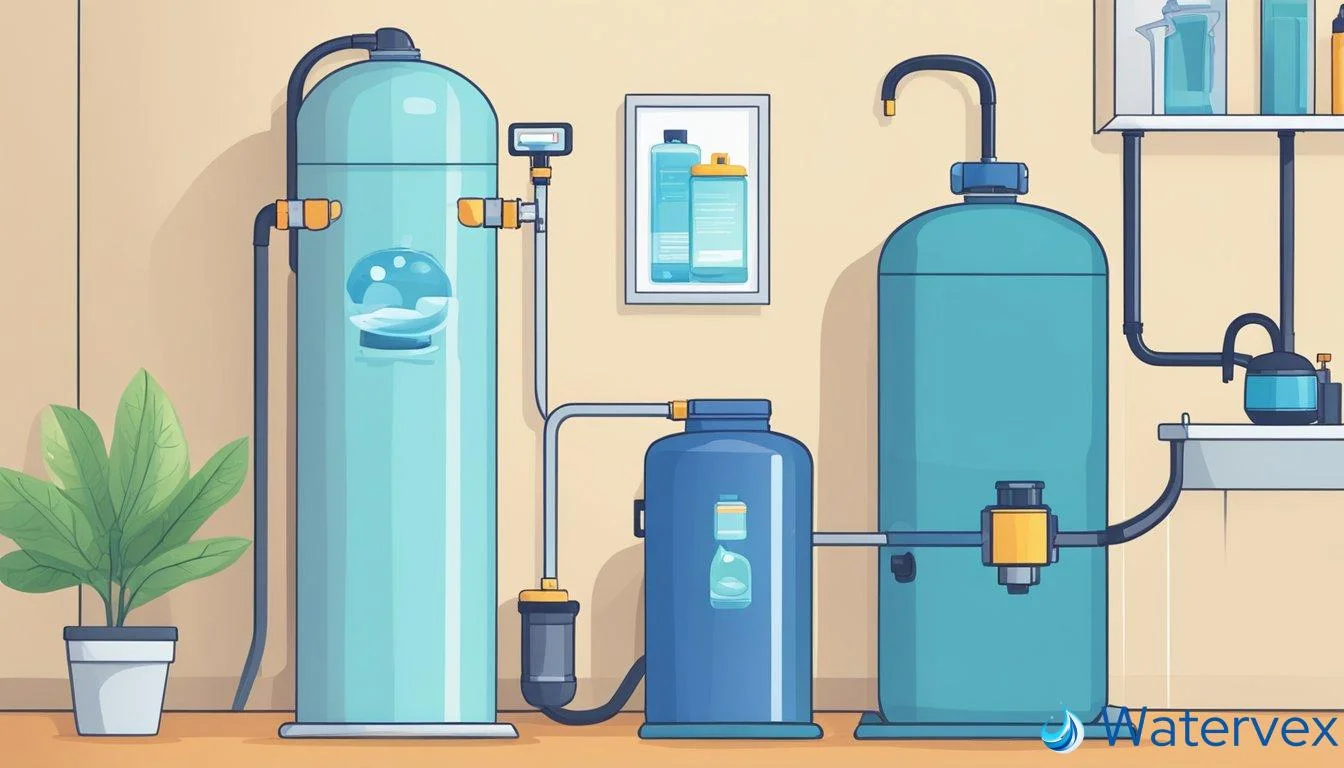In the UK, where hard water is a prevalent concern for many households, water treatment systems designed to tackle water hardness have become crucial. When considering water softeners and water conditioners, it’s important to understand how each one affects your water quality and household appliances. Water softeners have been the go-to solution for hard water treatment, removing calcium and magnesium ions through an ion-exchange process. As a result, you get drinking water that’s kinder to your skin, and household appliances free from limescale build-up.

On the other hand, water conditioners offer an alternative by using various technologies to alter the properties of hardness minerals, preventing them from depositing as scale. While they don’t remove the minerals from your water, they ensure that pipes and appliances remain scale-free. This distinction between modifying and removing hardness can greatly influence the longevity of your appliances, the efficiency of your water heating, and the overall taste and safety of your drinking water.
Key Takeaways
- Water softeners remove hardness minerals, while conditioners change minerals’ ability to deposit scale.
- Softened water can extend appliance lifespans; conditioned water preserves mineral content without scale.
- Choosing between a softener and conditioner depends on your preference for mineral removal or retention.
What Are the Key Differences Between a Water Conditioner and a Water Softener in the UK?
Water Softeners in the UK typically employ an ion exchange process. This means they replace calcium and magnesium ions, which are the main culprits behind hard water, with sodium ions. On the other hand, water conditioners use varied technologies; some may use Template Assisted Crystallization (TAC), which doesn’t remove the minerals but transforms them so they don’t adhere to surfaces, or electromagnetic and magnetic methods to alter the properties of the minerals.
When considering the differences between these systems, it’s crucial to identify your water requirements. If preventing scale buildup is your main concern, water conditioners might be sufficient. They are known for targeting scale without significantly altering the water’s mineral content. Magnetic or electromagnetic water conditioners, for instance, are typically easier to install and maintain, as they don’t require salt or chemicals.
In contrast, water softeners might be preferable if you’re facing severe hard water issues that a simple conditioner can’t address. By exchanging the minerals for sodium, water softeners provide soft water that’s gentler on your appliances and can improve the lathering of soap. The softened water can also prevent new scale from forming and might gradually reduce existing buildup.
Here are the main differences:
| Feature | Water Softener | Water Conditioner |
|---|---|---|
| Process | Ion Exchange | TAC, Magnetic, Electromagnetic |
| Main Benefit | Removes hard minerals | Alters minerals to prevent scale |
| Maintenance | Requires salt replacement | Minimal to no maintenance |
| Installation | Typically complex and requires a drain | Generally easier, often without a need for plumbing changes |
If you’re contemplating the best way to enhance your tap water quality, assess the level of water hardness and the specific issues you’re targeting. Lean towards a water softener for comprehensive mineral removal, or opt for a water conditioner to specifically address scale without removing beneficial minerals.
Remember, the UK has regions with varying water hardness, so tailored solutions will offer the best results for your specific situation. Ensure that you consult with a water treatment expert to make an informed decision that aligns with your water quality needs.
How Do Water Conditioners Work Compared to Water Softeners?

Understanding the nuances between water conditioners and water softeners is crucial for you as you navigate the options for improving your home’s water quality.
Functioning Principles of Water Conditioners
Water conditioners primarily tackle the issue of scale build-up without removing the hard minerals like calcium and magnesium from your water. Instead, methods such as Template Assisted Crystallization (TAC) transform these minerals into crystals that cannot stick to surfaces, which means they flow freely with the water and are less likely to cause scale. Think of it as altering their form so they can’t do the damage they typically would. Another methodology involves the use of a magnetic field or electricity to change the physical properties of the minerals, again preventing them from forming scale.
Mechanism of Water Softeners
In contrast, water softeners operate on an ion-exchange process where hard minerals are replaced by sodium ions. Hard water passes through a tank containing resin beads charged with sodium ions. The calcium and magnesium ions in the water are attracted to these beads and effectively exchanged for sodium ions. This exchange eliminates the minerals that cause hardness from the water. The result is softer water, paramount for eliminating scale buildup, extending the life of your appliances, and potentially improving the taste and safety of your tap water.
What Are the Benefits and Drawbacks of Each System for UK Homes?

When you’re contemplating the installation of a water treatment system in your home, it’s important to understand the distinctions between water conditioners and water softeners, particularly how they will affect your household’s water quality, plumbing health, and budget.
Advantages of Water Conditioners
Water conditioners provide limescale prevention without the use of salt or chemicals, making them a maintenance-free solution. This means you can avoid the salt intake from softened water and don’t have to worry about the regeneration process found in ion-exchange softeners. Additionally, they’re generally more efficient as they don’t waste water. Installation is typically easier, often just attaching to the main water line.
- Maintenance-free operation
- Healthier choice for reduced salt intake
- Simple installation with no intricate plumbing
Pros of Water Softeners
Water softeners, using ion exchange technology, are highly effective in removing calcium, magnesium, and even iron from your water, producing truly soft water. This prevents limescale build-up, which can extend the lifespan of appliances and pipes, and make cleaning surfaces more straightforward. Soft water also allows soap to lather more effectively, resulting in a better cleaning experience.
- Extended appliance lifespan due to limescale prevention
- Enhanced effectiveness of soap and detergents
- Comprehensive removal of hard minerals
Limitations of Water Conditioners
Despite being salt-free and easy to maintain, water conditioners may not be as effective as softeners at removing hardness minerals that contribute to limescale build-up. As a result, these minerals remain in the water, which might not be optimal for those sensitive to mineral content, or if your the limescale issues are severe.
- May not fully remove hardness minerals
- Limited effectiveness in very hard water areas
Cons of Water Softeners
The primary drawback of water softeners is their need for regeneration, which involves salt and water usage, leading to ongoing running costs and maintenance. They must be regularly supplied with salt, and the discharged brine can be an issue for waste management. The initial installation can be more complex compared to water conditioners, and the upkeep requires a continuous budget allocation.
- Regular salt and water use increasing running costs
- Higher complexity in installation and maintenance
As you weigh your options between water conditioners and water softeners for improving your household’s water quality and plumbing longevity, consider not only the initial outlay but the continuing implications on your budget, regularity of maintenance, and the efficiency of the unit in dealing with hard water in the UK.

